Sparkle Blu-ray Movie
HomeSparkle Blu-ray Movie 
Warner Bros. | 1976 | 98 min | Rated PG | May 07, 2013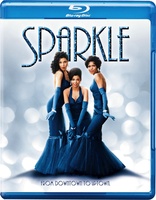
Movie rating
7 | / 10 |
Blu-ray rating
| Users | 0.0 | |
| Reviewer | 3.0 | |
| Overall | 3.0 |
Overview
Sparkle (1976)
In Harlem in 1958, three sisters experience turmoil after they form a singing group.
Starring: Philip Michael Thomas, Lonette McKee, Irene Cara, Dwan Smith, Dorian HarewoodDirector: Sam O’Steen
| Music | Uncertain |
| Musical | Uncertain |
| Romance | Uncertain |
| Period | Uncertain |
| Melodrama | Uncertain |
| Drama | Uncertain |
Specifications
Video
Video codec: MPEG-4 AVC
Video resolution: 1080p
Aspect ratio: 1.78:1
Original aspect ratio: 1.85:1
Audio
English: DTS-HD Master Audio Mono (48kHz, 24-bit)
Subtitles
English SDH, French, Spanish
Discs
25GB Blu-ray Disc
Single disc (1 BD)
Playback
Region free
Review
Rating summary
| Movie | 2.0 | |
| Video | 3.5 | |
| Audio | 3.5 | |
| Extras | 0.5 | |
| Overall | 3.0 |
Sparkle Blu-ray Movie Review
How Do You Get to Carnegie Hall?
Reviewed by Michael Reuben April 28, 2013Musical bio-pics have been a staple of cinema ever since Al Jolson first gave the movies a voice in The Jazz Singer. There's something irresistible in the genre's counterpoint of public adoration and private strife, the latter usually increasing in direct proportion to the degree of success enjoyed by the protagonist professionally. The bigger the star, the more savage the personal demons. In the mid-1960s, the Supremes became Motown's most successful recording group both domestically and internationally, successfully crossing over to appeal to both black and white audiences to a degree that no Motown act had previously achieved. Lead singer Diana Ross would leave the group in 1970, but the Supremes' place in the history of popular music was firmly established. No one has yet done a literal bio-pic of the Supremes, but their story inspired several heavily fictionalized accounts. One is Dreamgirls, which began as a Broadway musical and became a successful film adaptation. The other is the film Sparkle, which was released in 1976. A remake was being planned in the late 1990s but was shelved when its intended star, Aaliyah, died in a plane crash in 2001. The remake ultimately appeared in 2012 starring American Idol winner Jordin Sparks and the late Whitney Houston (her final film). The original Sparkle arrived during the later years of what came to be known as "blaxploitation", the rebellious genre that began with films like Gordon Parks's original Shaft (1971). No one would ever confuse Sparkle with such blaxploitation classics as Coffy or Foxy Brown, but it's entirely possible that the film's studio sponsors didn't see any difference. In any case, they were eager enough to hitch their wagon to the the genre's caché. They hired popular R&B musician Curtis Mayfield to write and produce the soundtrack and heavily promoted the fact that the composer for the successful Super Fly would be supplying Sparkle's tunes. But while Super Fly's tale of a rebellious cocaine dealer and its funk-driven soundtrack were both major hits, lightning didn't strike twice. Neither Sparkle nor its album achieved significant sales.
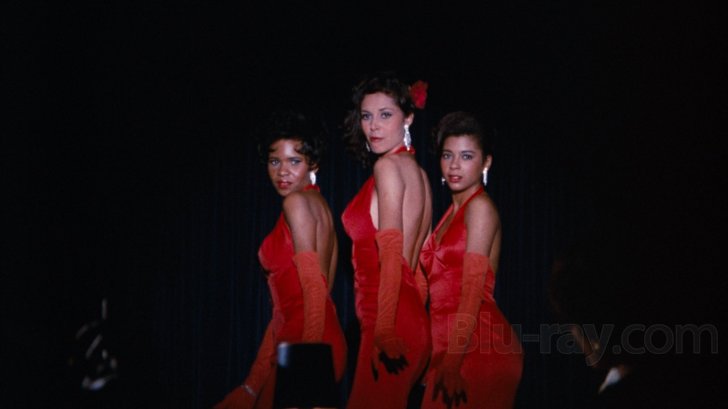
Sparkle Williams (Irene Cara, pre-Fame) is one of three teenage sisters living with their mother, Effie (Mary Alice) in Harlem in 1958. The other two are Delores (Dwan Smith) and the eldest, Sister (Lonette McKee). All three sing in their church choir, along with Levi (Dorian Harewood) and Stix (Philip Michael Thomas, the future Tubbs on Miami Vice), who has ambitions as a songwriter and a crush on Sparkle. Stix persuades Levi and the three Williams girls to enter a talent contest as a group, and they win, primarily on the strength of Sister's starry stage presence. Stix is excited, but Levi isn't interested in show business. His idea of making it big is to work for a steely-eyed local crook named Satin Struthers (Tony King), an "original gangster" before the term was even invented. In an effort to enhance their novelty, Stix refashions the act as an all-girl group called Sister and the Sisters and shifts himself to the position of manager. He gets the newly formed act a steady job singing at a local club, and it is there that the infamous Satin sees them and latches onto Sister. She is too young and naive to resist his advances, even though the manner in which he dismisses the date with which he arrived should provide ample warning of what kind of treatment Sister can expect as Satin's girlfriend. Soon enough, Sister is arriving at the club for work with bruises and blackened eyes. Drug use follows. If Sparkle had stuck to its show biz bio-pic setup, it might have been a much better film. But the writers, Howard Rosenman and Joel Schumacher (the future ruination of Tim Burton's Batman franchise), lose interest in the singing group's progress just at the moment when they start to taste success, which is usually when things get interesting. Having laid the groundwork for the kind internal rifts that would supply some of the most memorable moments in Dreamgirls, the writers send the story careening off in multiple directions involving half-baked revenge plots, sudden career changes, the civil rights movement, death off camera, abrupt splits and equally abrupt reconciliations and an eleventh-hour intervention by the mob. That's a lot of ground to cover. Despite its brief 98-minute running time, Sparkle feels incessantly busy, forever jumping into a new plot element, and never staying with any development long enough for it to register with any impact. The film's director, Sam O'Steen, was a distinguished editor for films as diverse as Chinatown and most of Mike Nichols' films including The Graduate and Catch-22. The same year that Sparkle was released, O'Steen won a DGA award for his direction of a TV movie, Queen of the Stardust Ballroom. That a filmmaker of such caliber could produce so clumsy a narrative bespeaks either a fatal mismatch between director and material or significant studio meddling (or possibly both). One of the defining elements of the blaxploitation genre is that it was founded by African-American filmmakers (notably, Gordon Parks and Melvin Van Peebles), but then picked up and developed by white-run studios attempting to extract and implement a cookie-cutter formula. (This no doubt helped fuel protests by organizations such as the NAACP, which is what ultimately led to the genre's demise.) The same mentality spills over into Sparkle, as the show business tale is crowded out by a checklist of classic blaxploitation elements that get wedged awkwardly into the story: e.g., drug dealing, mistreatment of women, violent crime and gangsters (black and white). Most of these elements probably could have been found naturally in the story of a girl singing group struggling to succeed in Harlem, but that would require much greater familiarity with the milieu than anyone behind the cameras of Sparkle possessed. By the time the story reaches its conclusion at a gala concert, it doesn't feel like the well-earned outcome of a struggle to the top. It's just the latest in an increasingly far-fetched series of arbitrary plot twists.
Sparkle Blu-ray Movie, Video Quality 
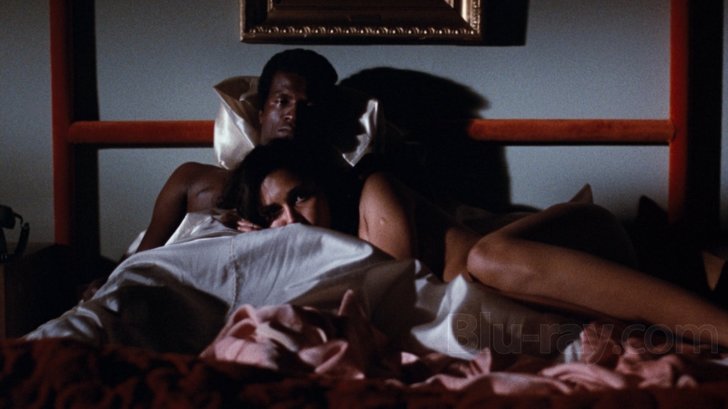
Sparkle was shot by Bruce Surtees, whose preference for low light earned him the nickname, "the Prince of Darkness". The image on Warner's 1080p, AVC-encode Blu-ray of Sparkle bears out Surtees' reputation. Despite the frequently dim conditions, however, the grain in the image remains natural and well-controlled, though it is frequently coarser and more noticeable than one would expect from a contemporary production. Still, there is no indication of high-frequency filtering or other untoward manipulation. While the image is not the most detailed I've seen from Warner, this appears to be a function of the original photography and not a fault of the Blu-ray. The level of detail is comparable to that in other films of this period. Blacks are solid and deep, and contrast is never overstated. Colors are properly saturated, although the film's palette isn't exceptionally bright, even in the performance scenes. Whether this is due to fading or reflects the original intent is something I cannot determine. However, the source material is in excellent shape (or has been well restored). Speckles, scratches and dirt are virtually nonexistent. With only a trailer as an extra, and a single soundtrack, the 98-minute film fits comfortably on a BD-25. No compression errors were in evidence.
Sparkle Blu-ray Movie, Audio Quality 
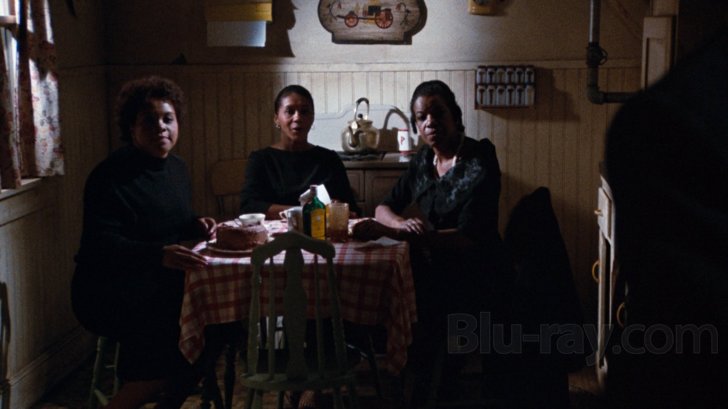
The film's original mono track is presented as lossless DTS-HD MA 1.0. It's a satisfactory track with surprisingly deep bass extension that is most noticeable during an early scene of choir practice, when the low tones of the church organ are impressive. In musical numbers, the highs can be slightly tinny and the midrange a little muddy, but these are minor complaints that are attributable to the age of the source, not the quality of the Blu-ray. The dialogue is always clear.
Sparkle Blu-ray Movie, Special Features and Extras 
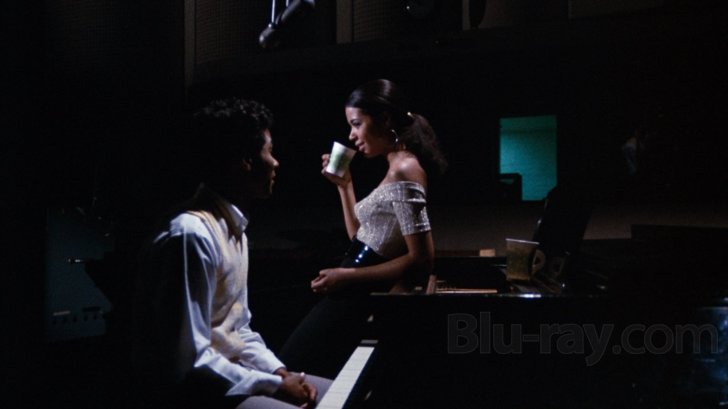
The disc's only extra is a trailer (480i, 1.78:1, enhanced; 3:08), which is notable for both its overall length and the length of the individual scenes contained in it.
Sparkle Blu-ray Movie, Overall Score and Recommendation 
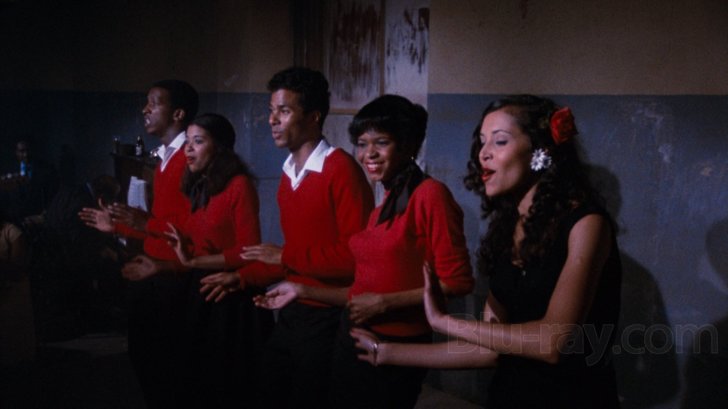
Sparkle isn't a very good film, but it's intriguing both for the people who appear in it, some of whom went on to major careers, and for the historical moment that it captures in the development of the African-American presence in cinema. It begins promisingly enough as a traditional show biz story, but it's then derailed by what had become, at the time, the most current set of movie cliches for portraying the lives of black Americans. Ironically, a superior model for such a film already existed, starring one of the Supremes. Lady Sings the Blues (1972) was nominated for five Oscars, including one for star Diana Ross's shattering portrayal of jazz singer Billy Holliday. If the makers of Sparkle had simply stuck to telling the story of the Supremes in much the same way, they might have had something. Recommended as a Blu-ray, but not as a film.
Similar titles
Similar titles you might also like
(Still not reliable for this title)

Jailhouse Rock
1957

The Sapphires
2012

Cabaret
Reissue
1972

Purple Rain 4K
40th Anniversary
1984

Dreamgirls
2-Disc Showstopper Edition
2006

Sparkle
2012

The Greatest Showman
2017

Spinout
Warner Archive Collection
1966

Marry Me
2022

Sweet Charity
1969

New York, New York
1977

The Jazz Singer
1927

Pure Country 2: The Gift
2010

Double Trouble
Warner Archive Collection
1967

Stormy Weather
Limited Edition to 3000 - SOLD OUT
1943

Tommy 4K
50th Anniversary Edition
1975

A Chorus Line
1985

A Star Is Born
2018

In the Heights
2021

Lady Sings the Blues
1972
